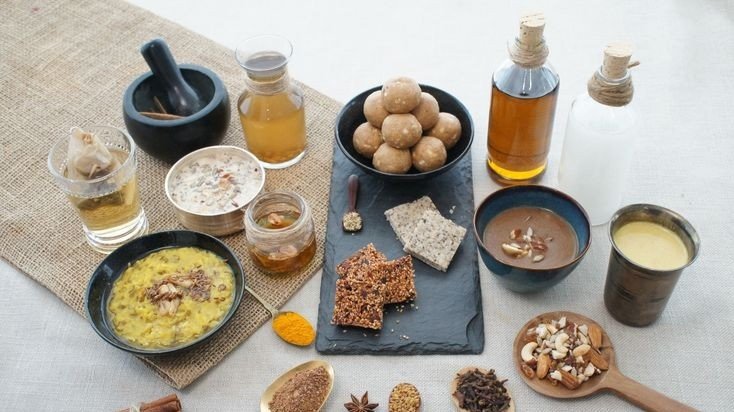Postpartum Then and Now
The postpartum period is a time where women are dealing with dual burden of recovery from childbirth and taking on multiple new roles. While great strides in antepartum and intrapartum care have been achieved worldwide; there has been a comparative lack of attention to the post-partum period. Which is counter-intuitive since a woman must spend her lifetime in this period as compared to the short duration of pregnancy and delivery.
However, this has not always been the case. Historically, our Indian culture has respected and cared for postpartum mothers far better than what we do today despite advances in modern medicine. They had specific traditional practices to make sure there is effective recovery from childbirth and preservation of long-term health.
Birth Institute student from Rochester, Maya D’Costa (it needed the Western Culture to recognize this !!!), gives us insight into the traditional ways women are supported during the postpartum period in India. Her paper states that in India, across cultures, the postpartum period was given much emphasis. After childbirth, women stay at home for approximately 6 weeks/40 days (a period of 'confinement ‘) This promotes recovery of mother, helps in establishing bonding and promoting breastfeeding.
Food is thoughtfully curated to meet special postpartum needs. Ayurveda, the 5000-year-old tradition of India, recommends sesame seeds, dry nuts, fenugreek seeds/leaves, garlic, drumsticks, carom seeds, edible gum are given to new mothers. Each ingredient is selected with care to address specific post-partum concerns: digestive ease, muscle and bone strength, immunity building and last but not the least breastmilk quality & quantity. Ajwain Laddu (popularly known as "Ajwma ra raddu" in Rajasthan) and Gond ki laddu are examples of the famous postpartum Marwari food!
New mom is given warm oil massages using sesame oil. Warm water that has been boiled with Neem leaves is used for bathing. Neem leaves are a natural antiseptic. Warm water can act as a balm to muscles.
These practices emphasise the value that our traditions placed on transforming a new mother into a strong woman ready for numerous life challenges. One could indeed argue that the focus on daily routines, rituals and the sense of being cared for helps in reducing postpartum anxiety and depression.
In contrast, in the current day practices, we support a mother only for a limited period after birth. And this support is also focused on breastfeeding, nurturing the baby and being a devoted mom but she is denied the support she needs to fulfil the “good mother” mandate. Institutional structures and norms reinforce and naturalize the sacredness of the postpartum maternal tether. Many mothers find it difficult or impossible to live up to these demands, due to short hospital stays, lack of maternity leave, and other missing social supports.
Unlike what happened historically, there is very little attention to the new mom’s self-care or indeed on strategies to making her a strong, resilient and healthy woman.
With migration, modernization, and globalization, it may be difficult to carry out the rituals or, conversely, feel pressured to carry out activities in which they no longer believe. However, the global truth we can all agree upon, is that postpartum recovery is not merely a biological event, nor is it an isolated, individual experience but should be a social process.
